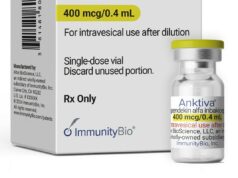
For decades, artificial intelligence has held science fiction-like promise. Today, nearly every field has been impacted by AI and many have been transformed. Marketing, finance, the legal sector and education, among other industries, have seen how machine learning can digest impossibly large sets of data and provide insights into improvements and efficiencies. But one of AI’s biggest promises lies in the healthcare field. So how can AI improve healthcare, starting from early stage drug discovery all the way to patient care? And how can the industry steer development and address challenges to ensure that AI tools improve over time and build stakeholder buy-in?
When marketing drives undue hype
During a drug’s journey from bench to bedside, there are multiple touchpoints where machine learning can provide value. It can be difficult to decipher, however, how many of the AI tools in development stand to offer real advances and where AI’s benefits have been exaggerated. In many cases, it is too soon to tell. This hasn’t stopped some companies from marketing this technology as a game-changer destined to transform the industry and cure disease, inevitably creating a tension between the experts and customers.

Leslie Wheeler of Spectrum Science
Leslie Wheeler, an Executive Vice President at Spectrum Science Communications, observed that entrepreneurs tackling healthcare challenges must be mindful that this industry is heavily regulated.
“Many of the players in AI in healthcare come from a tech background and may not necessarily understand the nuances in healthcare,” she said. “The regulatory landscape is complex and the healthcare audience, by nature, is skeptical. Lofty claims might fly in the tech space, but not in medicine. Science doesn’t deal in vaporware.”
Eric Moorhead, Senior Scientific Executive with Spectrum, agrees.
“One of the core tenets of the tech industry is disruption. I’m not convinced that healthcare as a whole can — or should — be disrupted. While I think there are efficiencies to be found, medicines are developed and regulated at a deliberate pace that prioritizes patient benefit and safety. The idea that steps can be skipped gives me pause.”
Where does AI offer hope in healthcare?
Expectation management will be crucial for the companies pursuing AI solutions at the intersection of technology and life sciences. In 2017, venture capitalists poured nearly $1.3 billion into these businesses across 103 deals, according to data from KPMG.
AI-based approaches that have been clinically validated have revolved around digital pathology, molecular diagnostics and medical imaging for clinical decision support. Diagnostics company Genomic Health’s molecular diagnostic Oncotype Dx, for example, has been used to predict the likelihood of recurrence for early stage breast cancer but has also been used for determining chemotherapy treatment options.
The intersection of technology and drug development is an area that has generated a great deal of excitement. The cost of drug development is so high, and applications which analyze data to identify suitable drug targets, expand indications for drugs already approved and speed up clinical trial recruiting offer the potential to reduce drug development costs. The goal is also to identify potential problems earlier to avoid costly late stage failures.
It is important to acknowledge that one underlying source of tension is the fear that AI technology will lead to significant job cuts if AI tools live up to the promise of automating time-consuming tasks.

Eric Moorhead of Spectrum Science
“My specific background is medicinal chemistry,” said Moorhead. “While I don’t think machines are coming for chemistry jobs, I do think that AI will be a valuable tool to help researchers narrow targets, generate leads and, hopefully, advance candidates quicker into the clinic.”
Many of the big names in the industry are beginning to experiment with AI in drug development, favoring partnership models with smaller AI companies. Sanofi and GSK each partnered with a Scottish AI company, Exscientia, with millions in milestone payments on the line, to streamline drug discovery. Sanofi’s collaboration seeks to identify synergistic drug targets for metabolic diseases, and GSK’s collaboration seeks to discover novel and selective small molecules across multiple therapeutic areas.
Additionally, AstraZeneca and Sanofi have each partnered with BERG, a tech business that applies machine learning analytics to patient biology. AstraZeneca’s partnership seeks to utilize AI to identify biological targets and treatments for neurological diseases including Parkinson’s disease. Sanofi’s partnership is looking for potential biomarkers of seasonal influenza vaccinations to better predict response.
Other partnerships focusing on early-stage discovery technologies include Insitro, started by Coursera co-founder Daphne Koller. Attracting investments from a high-powered group of venture capital firms including Andreessen Horowitz, GV (formerly Google Ventures), Third Rock, ARCH Venture Partners and Foresite Capital, Insitro plans to train machine learning models to help “address key problems in the drug discovery and development process,” according to a blog post by Koller. The company’s ambitious goal is to create a way to develop drugs that are cheaper, faster and have a higher success rate than traditional models. Doing her part to minimize over-promising claims, Koller noted in the post that she does not expect this approach to offer a “magic bullet” so much as add another option for drug developers.
AI has shown some preliminary successes on the other end of the drug pipeline. Machine learning can help better match patients with clinical trials, cutting down the time it takes to appropriately conduct and run a clinical study. One of the companies in this area is Deep 6 AI. It uses AI and natural language processing to generate clinical data points – symptoms, diagnoses, treatments, genomics, lifestyle data — to match complex clinical trial criteria. One assessment of the company’s technology found and validated 58 eligible matches for a non-small cell lung cancer trial within minutes compared with traditional recruitment methods which took six months. In addition, AI can help determine anticipated responses in said trials. In September, GNS Healthcare announced it had joined forces with Amgen and the Alliance for Clinical Trials in Oncology to identify factors that drive treatment response in patients with metastatic colorectal cancer.
The rise of industry alliances
To foster the creation and validation of AI software for drug development, a few alliances have come into being between academia and pharma companies, as well as big pharma and technology startups. Last year, MIT formed a group to transform the process of drug design and manufacturing through the design of software for the automation of small molecule discovery and synthesis. Called Machine Learning for Pharmaceutical Discovery and Synthesis Consortium, the group includes industry players such as Amgen, AstraZeneca, BASF, Bayer, GSK, Lilly, Janssen, Merck, Novartis, Pfizer, Sunovion, and WuXi.
The Alliance for Artificial Intelligence in Healthcare will mark its official launch at the JP Morgan Healthcare Conference this week. Among its goals are:
- Establish standards for the industry definition of AI and how it can be applied to existing industries to reduce risk and improve outcomes
- Address the hype machine by setting clear and pragmatic expectations for AI and monitoring the news to track how and when the technology’s outcomes are exaggerated
- Lead the effort to form industry partnerships with regulatory bodies to help hammer out regulations needed for the use and implementation of AI in biomedical discovery and patient care.
Other goals include facilitating data sharing and open access to key findings and setting up a model and testing approach for quality control. These developments make sense to Wheeler, who sees these groups as essential for AI in healthcare to establish standard practices.
“To facilitate the discussion and to accelerate the adoption of these approaches in clinical trials and decision making, more stakeholders will need to discuss and debate,” Wheeler said. “I am very excited to see that new groups have formed like the Alliance for Artificial Intelligence that will be looking at how to standardize AI and the policies and regulations surrounding it.”
Outlook
2019 has the potential to be an incredibly critical year for the advancement of AI in healthcare. The formation of the Alliance for Artificial Intelligence in Healthcare is a positive development and recognition that establishing standards and best practices will be crucial for companies to hone their AI tools.
Former Flatiron Health Chief Medical Officer Amy Abernathy is poised to become principal deputy commissioner with the FDA next month. In her role at the oncology data company, which Roche acquired last year, she addressed the challenge of upgrading the unstructured data from electronic health records so that it could be useful for clinicians and researchers. That is the kind of insight and industry knowledge that will be crucial for the FDA to work well with companies developing AI tools in healthcare.
Moorhead said this year will be pivotal in gauging the progress and potential of AI in healthcare. In 2019, he is looking to see where AI technologies are beginning to show a return on investment.
“I would like to see more in the way of case studies that demonstrate how companies’ AI technologies are providing value. There’s a lot of excitement around the incorporation of AI in early stage drug development,” he said. “I’m interested in seeing how it all comes together — I think skeptics are waiting for when these ideas begin to provide tangible benefits. I’m sure investors are as well.”
Going forward, transparency and rigorous validation will be crucial to maintaining positive momentum of AI in healthcare. Additionally, it is important to recognize that while AI offers a valuable support mechanism, it is not itself a panacea for healthcare. There will inevitably be setbacks as with any innovative technology. A frank assessment of these failures and insights on how to improve will keep this burgeoning area honest, reinforce stakeholder support and ensure the technology’s future long term.
Picture: Getty Images, wigglestick








